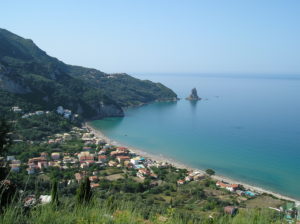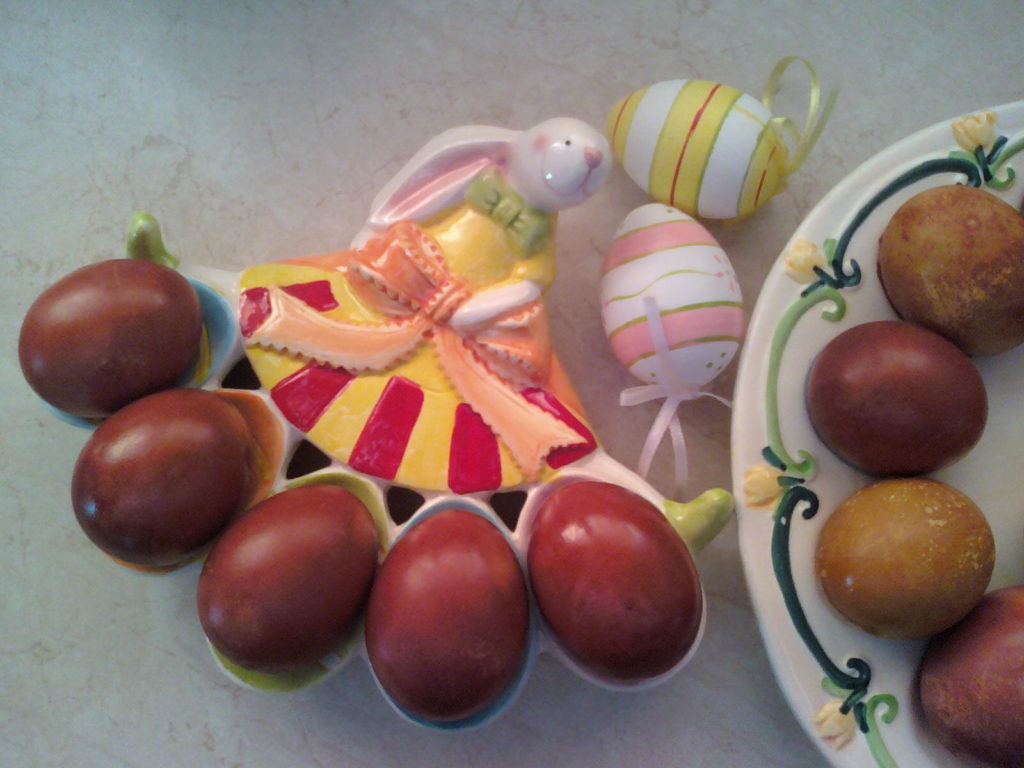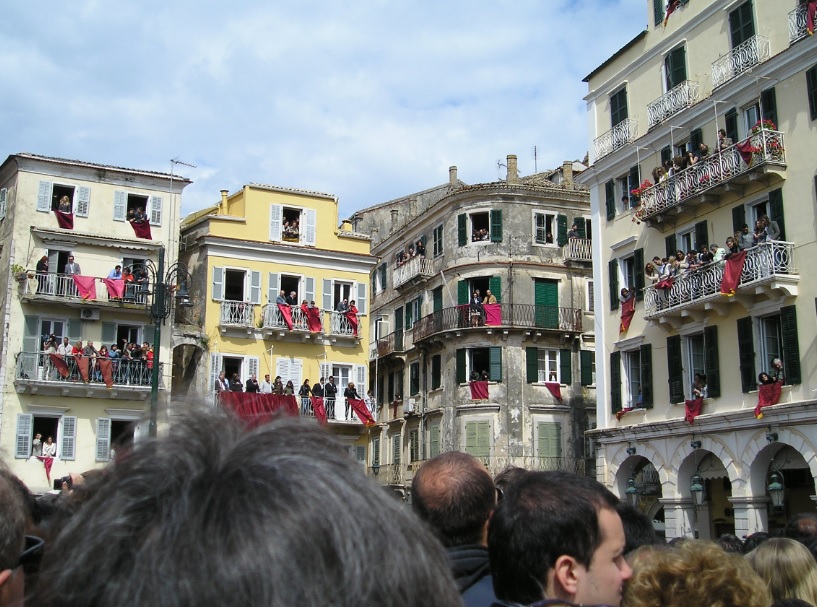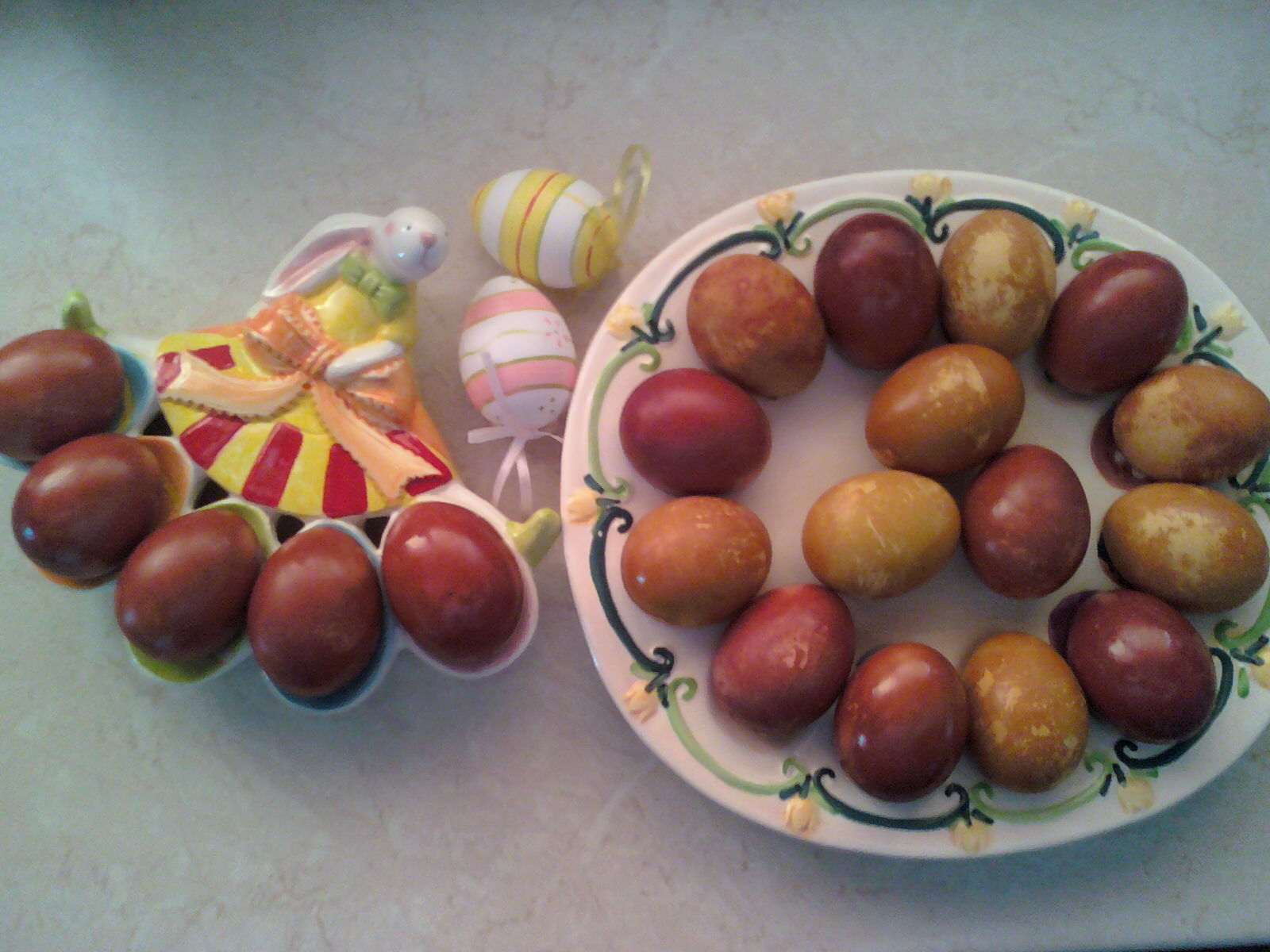Easter in Greece is the brightest holiday, even more so than Christmas. The Greeks celebrate it with wonderful customs that make it a huge joy to attend the festivities. No matter where you are in Greece, the evening of Good Friday will find you following the epitaph procession with a lit brown candle in your hand, an experience that always makes my heart swell as the fragrance of jasmine and honeysuckle from the yards waft in the crisp night air, and the solemn melody of the hymn ‘Oh glyki mou aiar’ delights my ears. The epitaph is a wooden structure adorned with a multitude of flowers. A depiction of Christ lies inside and the epitaph serves as His tomb. Seeing that the procession symbolizes His funeral, the mood of this procession is mournful and voices are kept to a respectful low volume.
Midnight on Holy Saturday is the exact opposite experience. Here, the atmosphere is joyful, and how can it not be with the fireworks exploding overhead and the church bells ringing madly! The priest brings out the holy light (flown into the country from Virgin Mary’s tomb in Jerusalem the same day and distributed to every church on time), and people light up their white or red candles as they kiss and exchange the news of Jesus’ rising from the dead. One person will say ‘Christos Anesti’ (Christ has risen) and the other will respond ‘Alithos Anesti’ (indeed, He has) or ‘Alithos, o Kyrios’ (indeed, the Lord has).
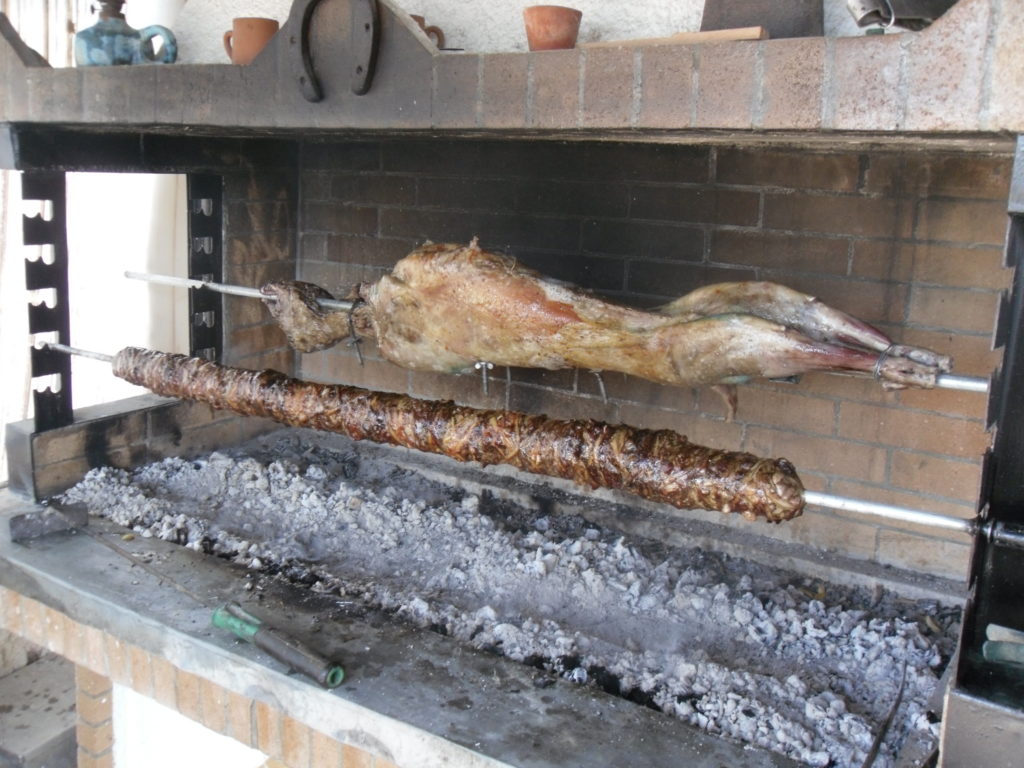
On Easter day, the Greeks get up early to put the lamb and the kokoretsi on the spit. Lunch is a grand celebration that includes bumping together Easter eggs (traditionally dyed red).
Other than the above festivities that can be sampled anywhere in Greece, there are variations in places. For example, on the island of Hydra, the procession of the epitaph is not done on the road but in the sea by boat. Also, there are special customs in other parts, such as the spectacular ‘rocket war’ between two churches on the island of Chios and the burning of effigies of Judas in various parts of the country.
By far, and I am not just saying this because I am biased – everyone agrees here – the brightest Easter you can ever experience in Greece takes place in Corfu town.
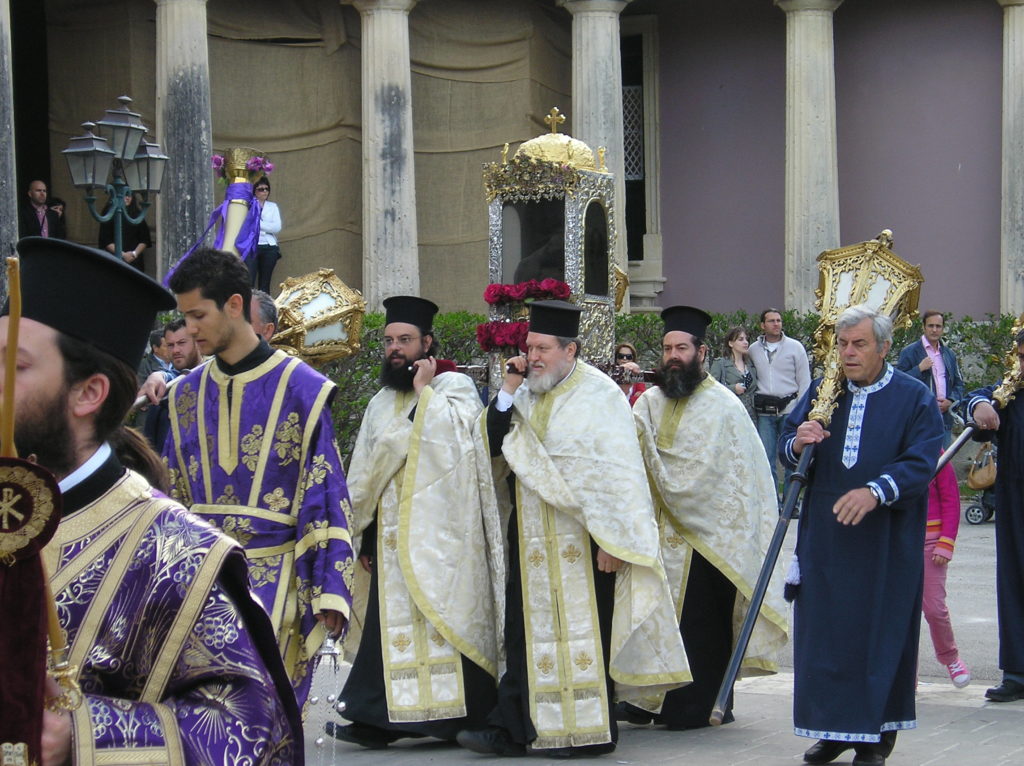
The Holy Relic of St Spyridon is taken around town several times a year during the grand processions.
Other than the multitude of epitaph processions and spectacular fireworks display you’re in for here, Holy Saturday stands out for two things: the grand procession of St Spyridon, schools, boy scouts, and philarmonic orchestras that starts in the old town at 9:00 am, and the ancient custom of ‘botides’ that is a spectacle everyone should behold at least once in their lives.
Botides are massive ceramic pots that the Corfiots throw from high balconies when the bell tolls the ‘First Ressurection’ at 11:00 am before a huge crowd. What follows is a pandemonium of cheers and noise that is said to ward off evil and celebrates the victory of Man over death. The atmosphere soon becomes electric and you feel so elated, it almost feels like you’re ready to grow wings on your back and fly. You have to experience it firsthand, I guess, but that’s the best way I can describe the feeling! Here’s a little taste:
Here, I will also share Amleto (Little Hamlet, from Faccio’s opera) – my favorite piece of music played by the Old Philarmonic in Corfu town on Saturday morning during the grand procession I mentioned earlier. Total silence falls among the locals when the band begins to play this song as to enjoy it fully – this is a piece of music adored by the Corfiots, including me, as it has the unique power to compel and to make your heart swell. You be the judge – although again, you have to be there to experience the atmosphere to the max:
And below, a video taken at the square (Spianada) by Liston – Amleto starts at the time mark of 2:10
For the Greeks, Easter is a religious experience that goes on inside their souls. It is a chance to gather hope and strength inside and to keep going, no matter the hardship. It is one of the Greek secrets, if you like, for their ever renewed ability to withstand adversity and to keep the faith. During the Holy Week, the Greeks wish each other ‘Kali Anastasi’ (Happy Resurrection), which doesn’t only mean the enjoyment of the midnight festivities on Holy Saturday – it also means a resurrection in their lives; it wishes the preservation of hope until a better day comes. Therefore, as you appreciate, Easter to the average Greek is not just a cause for celebration but a form of psychotherapy too – a provider of renewed hope. I hope this makes sense. For what it’s worth, this is the best way I can share it with you, what Easter is to a Greek!
And with this, I bid you adieu, wishing you a wonderful Easter no matter where you are and how you plan to celebrate.
Please note: if you ever plan to visit Greece for Easter, do check online for the date of Orthodox Easter first. It coincides with Easter in the rest of the world only once in a few years!
And now, I am off to my kitchen to make Easter cookies. Holy week is a busy one for Greek housewives. Thankfully, I’ve already dyed the Easter eggs! I make mine with red onion leaves and curry to avoid those nasty chemicals. See how I prepare them here
Kali Anastasi & Happy Easter!
